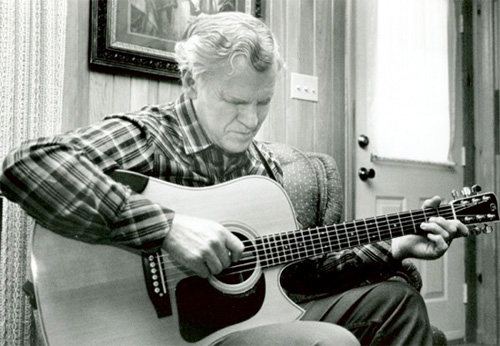Scott Avett’s theoretical last will winnows earthly import to a chill. “Don’t bother with all my belongings,” he sings on “Murder in the City,” the unifying nucleus of the Avett Brothers’ recent EP, The Second Gleam. “Make sure my sister knows I loved her/Make sure my mother knows the same/Always remember there was nothing worth sharing/Like the love that let us share our name.” Unflinching intimacy-a defining nexus of Avett song craft-reveals generations of grace and gratitude.
Videos by American Songwriter
Scott Avett’s theoretical last will winnows earthly import to a chill. “Don’t bother with all my belongings,” he sings on “Murder in the City,” the unifying nucleus of the Avett Brothers’ recent EP, The Second Gleam. “Make sure my sister knows I loved her/Make sure my mother knows the same/Always remember there was nothing worth sharing/Like the love that let us share our name.” Unflinching intimacy – a defining nexus of Avett song craft – reveals generations of grace and gratitude.
“We’ve seen a lot of temporary, disposable, plastic music in the mainstream,” Seth Avett says. “When the public becomes oversaturated with that, it’s very pleasing to the ear to hear something more simple and human and with less libido, like someone’s just talking to you.” The Avetts’ post-punk mountain tomes-often wrapping Charlie Poole’s banjo blues (“Pretty Girl from Chile”) and calypso great Lord Kitchener (“Pretty Girl from San Diego”) around a single theme-aren’t merely refreshing. They’re reinventing modern confessionals as substantive art.
[wpaudio url=”https://savageventures-develop.go-vip.net/wp-content/uploads/2009/03/I_and_Love_and_You.mp3″ text=”The Avett Brothers – I and Love and You” dl=”0″]
But forget whimpering whippoorwills. The Avett Brothers’ legendary and incendiary live sets-the Appalachian Crazy Horse antithesis to, say, James Taylor-have shaped their burgeoning legacy. Calm and storm collide.
Rick Rubin abides. The peerless producer scouted and last year signed the Avetts to his Columbia imprint American Recordings. Midas touch alert: Rubin, an enthusiastic advocate of the Avetts’ melodic masterpiece Emotionalism, commandeers their major-label debut tentatively due in June. (Notoriously press-shy, Rubin declined American Songwriter‘s interview requests.) “Rick’s a quiet leader in the shadows,” Scott says. “Amazingly, we managed to not get distracted with a producer of such caliber.”
Seth Avett speaks with an alchemist’s precision. The 27-year-old’s thoughts cataract swiftly, preformed-not this morning, but seemingly lifetimes ago-and patiently wait to be extracted by corresponding questions. Even the most careless listener might wake to his frequent coruscations of wit and whimsy. Seth’s intent but not intense, thoughtful yet hardly self-important. At all times, his genuine affability sparks interest. Little passes by unnoticed.
Of course, he well understands the magnitude of pairing with Rubin. “Working with Rick has been very-what’s the word-momentous,” Seth says. Gentle laughter chases the statement’s grandiosity. “I think in our history, it will read that there was a before and an after. This has definitely been a milestone, and it’s intense in ways that recording had not been previously. Not in the way you might expect, either. In the studio, it wasn’t tense or apprehensive or anxious, just very work-oriented and motivated.”
The Avetts are no strangers to robust work ethic. “Scott and Seth pretty much eat, drink and sleep art,” says manager Dolphus Ramseur, whose Ramseur Records jumpstarted the Avetts’ nascent career at millennium’s turn. “They’re always working on songs individually and bringing them to the other to dissect it or finish it off. I think what’s been overlooked from the word go with these guys is that they’re songwriters. It’s the songs-not the screaming and stomping and charisma-that hook you. They’re the greatest songwriters that the state of North Carolina has ever produced.”
The brothers provide glimpses of the upcoming album-untitled, unmixed, unadorned and absolutely unavailable at press time-via YouTube concert clips. It’s an embarrassment of riches. Start with “The Tin Man.” The early standout juxtaposes a cheery melody and burbling dirge against trademark introspection. “You can’t be like me, but be happy that you can’t,” Seth warns. “I see pain but I don’t feel it/I am like the old tin man/I’m as worn as a stone/I keep it steady as I can/I see pain but I don’t feel it/I am like the old tin man/Oh, I miss that feeling I’m feeling.”
The loping soliloquy-much like Emotionalism‘s high-water mark “Paranoia in B-Flat Major”-tightropes that conflict in under four minutes. But the clash resonates. “I’ve always been interested in songs that do that,” Seth explains. “You’ll find that a fair amount in Blind Melon’s music. Shannon Hoon had the most beautiful and joyous voice while he was talking about the most heart-wrenching challenges and self-doubt and pain and confusion. He made it sound so sweet. What an apt description of people in general: We’re all complicated, and we all have a way of being two ways at once.”














Leave a Reply
Only members can comment. Become a member. Already a member? Log in.